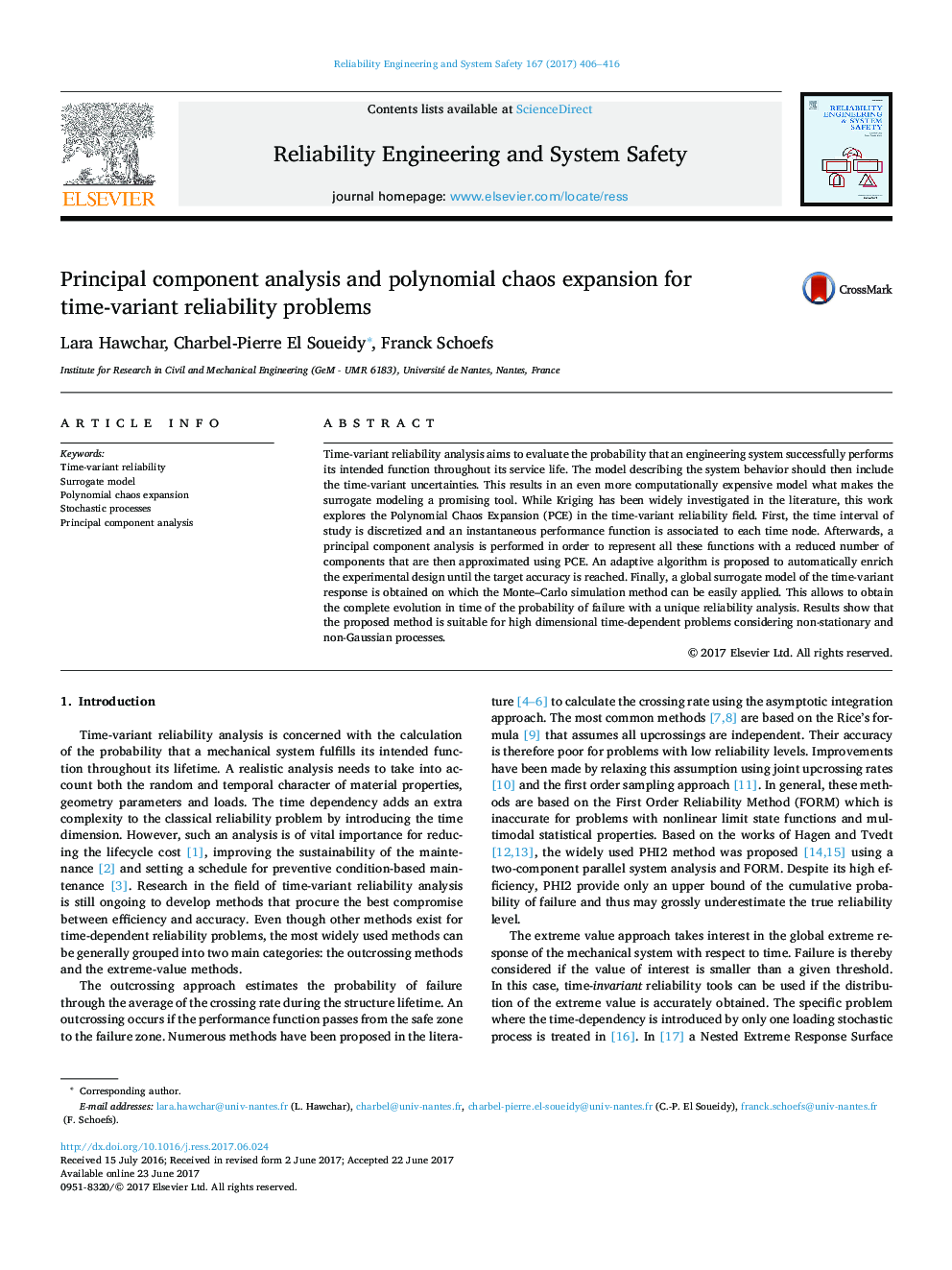| Article ID | Journal | Published Year | Pages | File Type |
|---|---|---|---|---|
| 5019495 | Reliability Engineering & System Safety | 2017 | 11 Pages |
Abstract
Time-variant reliability analysis aims to evaluate the probability that an engineering system successfully performs its intended function throughout its service life. The model describing the system behavior should then include the time-variant uncertainties. This results in an even more computationally expensive model what makes the surrogate modeling a promising tool. While Kriging has been widely investigated in the literature, this work explores the Polynomial Chaos Expansion (PCE) in the time-variant reliability field. First, the time interval of study is discretized and an instantaneous performance function is associated to each time node. Afterwards, a principal component analysis is performed in order to represent all these functions with a reduced number of components that are then approximated using PCE. An adaptive algorithm is proposed to automatically enrich the experimental design until the target accuracy is reached. Finally, a global surrogate model of the time-variant response is obtained on which the Monte-Carlo simulation method can be easily applied. This allows to obtain the complete evolution in time of the probability of failure with a unique reliability analysis. Results show that the proposed method is suitable for high dimensional time-dependent problems considering non-stationary and non-Gaussian processes.
Keywords
Related Topics
Physical Sciences and Engineering
Engineering
Mechanical Engineering
Authors
Lara Hawchar, Charbel-Pierre El Soueidy, Franck Schoefs,
